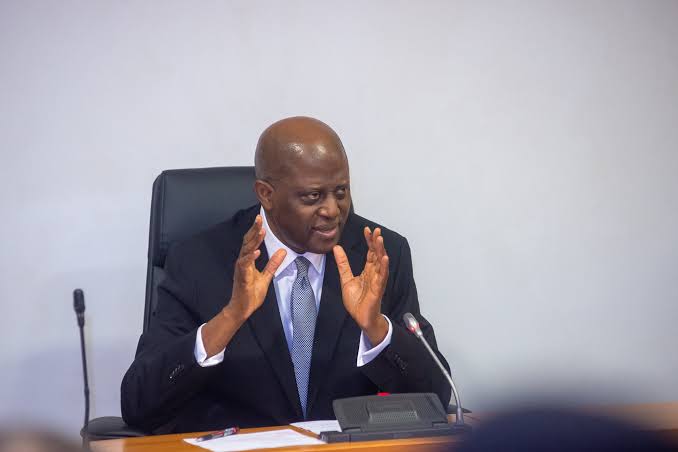Nigeria’s inflation has dropped for the sixth consecutive month, reaching 18.02 percent in September, its lowest point in three years. The Central Bank of Nigeria revealed this development in a statement by Governor Yemi Cardoso on Thursday in Washington, describing the steady decline as a sign of growing stability in the country’s economic outlook. The latest data, sourced from the National Bureau of Statistics, shows that both core and food inflation have continued to ease, reflecting the gradual success of recent policy adjustments aimed at restoring market confidence.
According to the report, core inflation slowed to 19.53 percent, while food inflation moderated to 16.87 percent during the same period. These figures indicate a positive shift in consumer prices, providing relief for millions of households struggling with the cost of living. Governor Cardoso explained that this sustained drop in inflation highlights the effectiveness of the Central Bank’s coordinated strategies to curb monetary pressures and stabilize the naira. He noted that while challenges remain, the trajectory of the numbers proves that the economy is responding well to ongoing reforms.
The CBN governor emphasized that tighter monetary control, fiscal discipline, and improved coordination with key ministries have been critical to this progress. Through consistent policy implementation, the Bank has strengthened investor confidence, curbed speculative trading, and encouraged capital inflows that support the real economy. In addition, he stated that these measures have reduced excessive liquidity that once fueled inflationary spikes, making room for sustainable growth in production and investment sectors.
The government’s broader reform agenda under President Bola Ahmed Tinubu has also played a significant role in shaping this outcome. The removal of inefficient subsidies, harmonization of foreign exchange rates, and efforts to support small businesses have gradually restored balance to the economic environment. Although the initial phase of these reforms brought temporary strain, the latest data shows that stability is emerging as a tangible result.
Analysts have welcomed the decline in inflation as a crucial indicator of renewed confidence in Nigeria’s fiscal management. Many believe that if the current trend continues, the nation could soon experience lower borrowing costs, improved savings value, and stronger purchasing power for ordinary citizens. The moderation in food inflation, in particular, brings hope to households across urban and rural areas that have endured years of rising prices for essential goods.
Despite the progress, experts caution that sustained vigilance remains necessary. Governor Cardoso agreed that continuous monitoring of global oil prices, exchange rate dynamics, and local food supply chains will be vital to maintaining this stability. He reaffirmed the CBN’s commitment to ensuring price stability and supporting policies that promote long-term economic resilience. By encouraging productivity, boosting agricultural output, and maintaining fiscal transparency, Nigeria aims to consolidate these gains and protect citizens from future economic shocks.
The recent inflation report represents more than statistical improvement; it signals a psychological boost for the country’s financial system. Investors are beginning to view Nigeria as a market regaining balance, while citizens see proof that difficult reforms can yield positive results. The six-month decline also strengthens the Central Bank’s credibility, showing that consistent policy direction can deliver real outcomes when guided by data-driven leadership.
As Nigeria continues its path toward economic renewal, the message from the Central Bank remains clear: stability is returning, and the foundation for sustainable growth is being rebuilt. The drop in Nigeria’s inflation rate reflects more than policy—it embodies resilience, discipline, and the promise of a stronger economic future built on consistent progress and shared prosperity.




